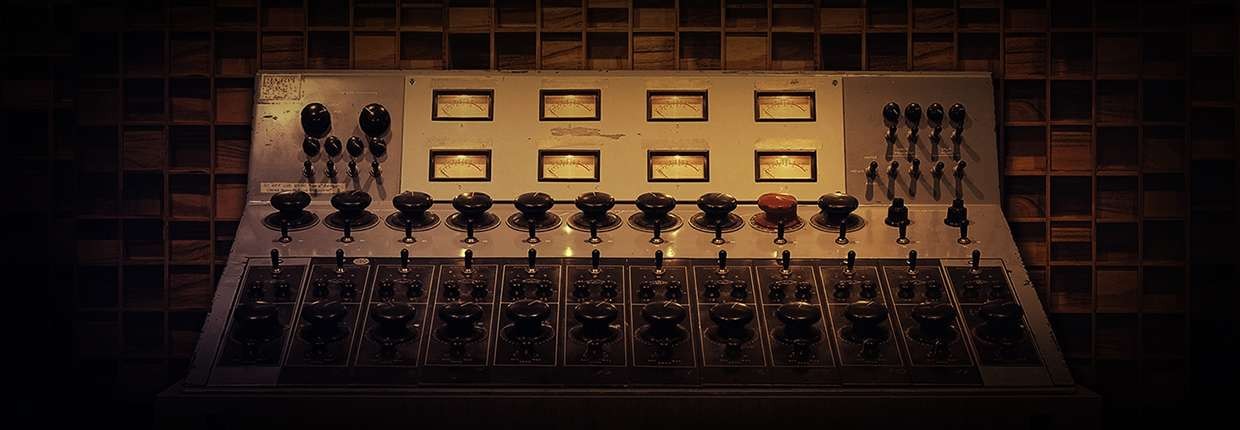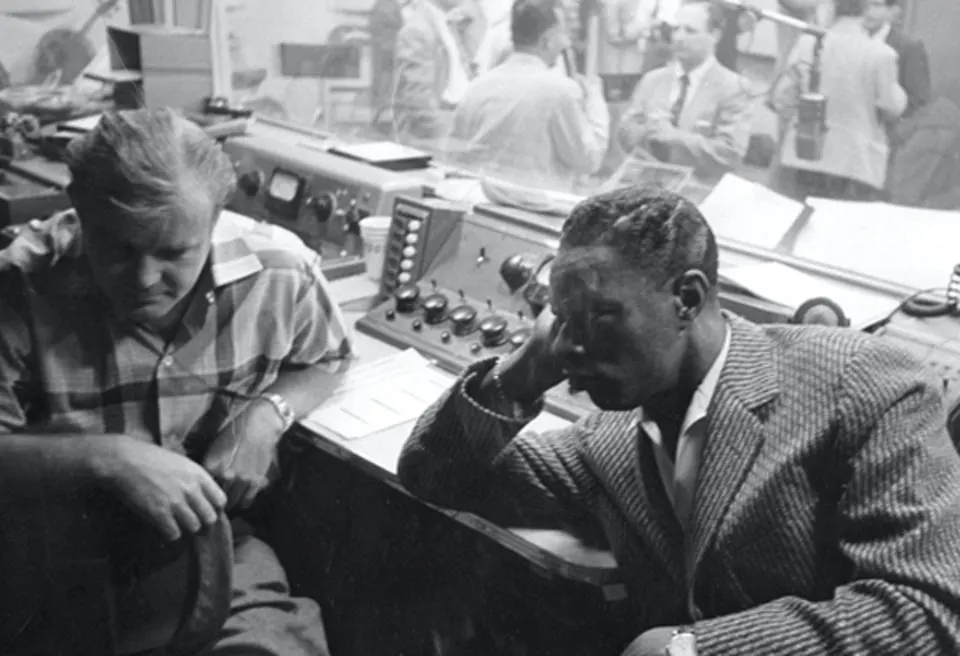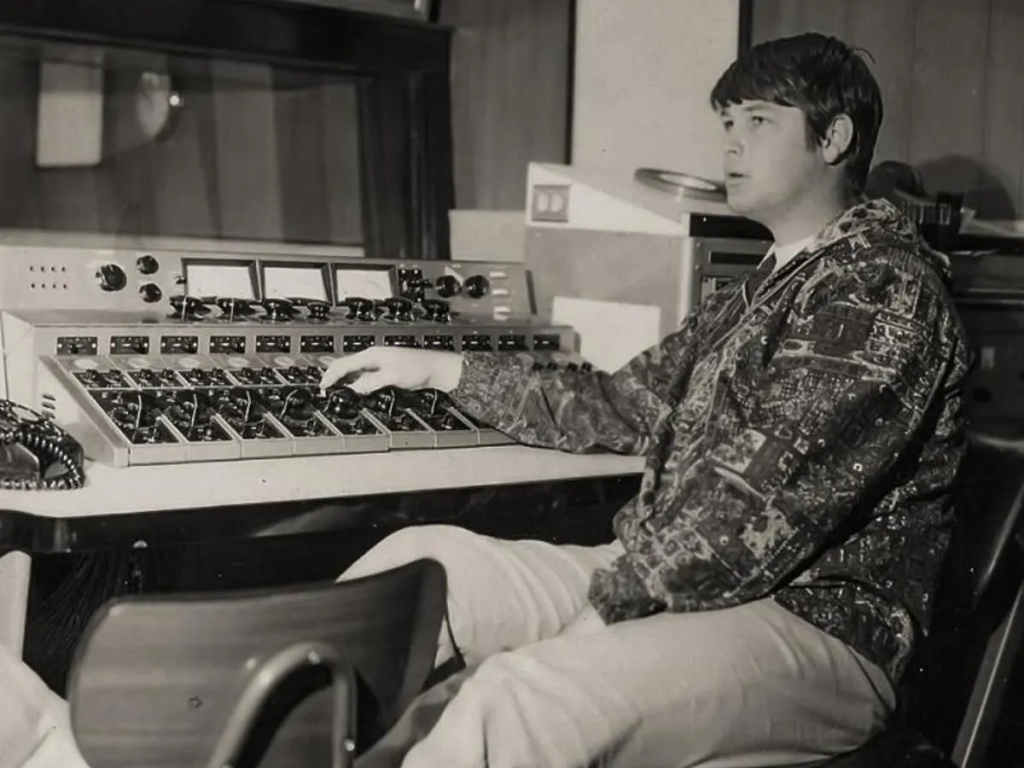Recording, Mixing and Mastering
Published on 29/10/2023

Milton Tasker Putnam, Bill for everyone, (20 February 1920 - 13 April 1989) played many roles in his professional career: audio engineer, author, producer, studio designer and others more related to business aspects. He is defined by many as the father of modern recording.
He invented and developed the concept of the recording console and is recognized as a key figure in the development of the post-war commercial recording industry.
Bill Putnam was born in Danville, Illinois to a family that owned several coal mining businesses. At the time, his father also ran a radio show at WDZ in Tuscola, Illinois. This is probably the spark that generated the whole story.
His love for electronics was born in his youth thanks to his father who guided him in the creation of a galena radio (a very simple device for receiving AM radio signals) and a valve radio.
Putnam trained by attending Danville High School and working part-time in a friend's radio shop where he gained practice repairing radios and PA systems.
At that time he sang with some local groups that played concerts on university campuses, developing his interest in jazz and the world of music and relationships with musicians.
After high school he graduated from Valparaiso Technical Institute with a degree in communications engineering.
His professional career began in the engineering department of WDAN (a Danville radio broadcaster), and later (with the title of Lead Engineer) in WDWS radio in Champaign, Illinois. In that period he began writing articles for Radio and Television magazine.
In 1941, at age of 21, Putnam served as a civil service clerk for the U.S. Army Engineering team under the Sixth Command in Chicago.
Putnam is assigned to several projects, among them a miniaturized, concealable weapons detector used by the United States Secret Service to protect President Franklin D. Roosevelt at the Tehran Conference.
In 1946, Putnam founded Universal Recording Corporation in Evanston, Illinois, to pursue both the development of specialized recording equipment and new recording techniques.
Putnam, with this company, secured a contract to record and broadcast shows for the ABC radio network.
In 1947, Putnam moved Universal Recording to the 42nd floor of the Chicago Civic Opera Building and made an agreement with The Harmonicats to handle the recording and release of their album.
His use of the building's bathroom as an echo chamber for the recording of Peg o' My Heart was the first artistic use of artificial reverb in a pop song.
The song sells 1.4 million copies. This convinces Putnam to found the Vitacoustic and Universal Records labels to attract new customers.
That same year, Putnam made the first recording with a single artist singing more than one track with Patti Page and George Barnes. The method is quite curious.
Patti Page sings the vocal line of the second part and records it on a 17.25" inch record. This track is played while the singer adds the lead line and the sum of the two is recorded on a wire recorder.
The system, despite its articulation, inspired Les Paul to design his own multitrack recorder based on magnetic tape.
Putnam's company quickly became the largest independent studio in Chicago.
Projects are recorded at the location for independent Chicago record labels such as Vee-Jay, Mercury, Chess and One-derful.
His reputation grew rapidly thanks to his work with artists such as Count Basie, Sarah Vaughan, Little Walter, Dinah Washington, Vic Damone and Duke Ellington (who names Putnam as his favorite engineer). come suo ingegnere preferito).

During his time at Universal Putnam achieved a series of recording industry firsts.
These included the first use of the tape echo, the first Vocal Booth, the first multiple vocal recording, the first use of delay lines in the studio and the first release, in 1956, of discs mastered at half speed (for the label Mercury.)
By the mid-1950s, Putnam was one of the most sought-after manufacturers in the United States.
Universal Recording was so successful that clients including Nelson Riddle, Mitch Miller and Quincy Jones began urging Putnam to open a facility on the West Coast.
In 1957, with the support of Frank Sinatra and Bing Crosby, Putnam sold his interest in Universal Recording and moved to Hollywood, taking over and remodeling a disused movie studio at 6050 Sunset Boulevard to found a new company, United Recording.
United's facilities include three acoustically isolated studios of various sizes, three vinyl mastering studios (one of them compatible with the stereo format that was being developed in those days), and a mixing room (also stereo).
Furthermore, each studio has its own reverberation room (needless to say, the reverb recordings were stereo compatible).
All facilities were wired to the Control Room so they were available to each other as needed.
In this way, the concept of the recording studio was born which still functions today.
After further increases in the activity and facilities dedicated to recording, in 1963, Putnam extended its presence to Las Vegas.
The newly formed United Recording Corporation of Nevada had, among others, the possibility of recording "on location" thanks to a complete studio built on board a truck.
In these years Putnam developed the first US multiband audio equalizer and founded Universal Audio and, later, Universal Recording Electronics Industries (UREI) to develop and manufacture studio equipment.
Thus was born the Studio Electronics recording console equipped with modular channel stripsi 610 which soon became the standard in studios across America.

Putnam is also responsible for the LA-2A and 176 tube compressors and their transistor-based successors, the LA-3A and 1176 all milestones among pro audio products.
The Audio Engineering Society awarded Putnam a Fellowship Award in 1959 and an Honorary Membership in 1983 "for lifelong contributions to studio design and the design and manufacture of audio instruments and equipment."
In 2000, Putnam received a Special Merit/Technical Grammy Award (posthumously) for his contributions to the music industry.
Also in this case we are faced with a multifaceted mind that has managed to achieve excellence in many fields of the music industry.
A perfect synthesis between creativity and practical sense at the service of music.
The founder's legacy is carried on by Bill Putnam Jr who, in 1999, brought the brand back into vogue and, starting from the production of the house's most famous models, revitalized the catalog.
Today the Universal Audio catalog is full of hardware and software products for all the needs of audio professionals.
Information reported here comes from the following sources:
Wikipedia
Forbes: Universal Audio’s CEO Bill Putnam Jr Recalls 60 Years Leading The Music Production Business
Universal Audio
Join us today and get 5% off your next order!

Empty cart